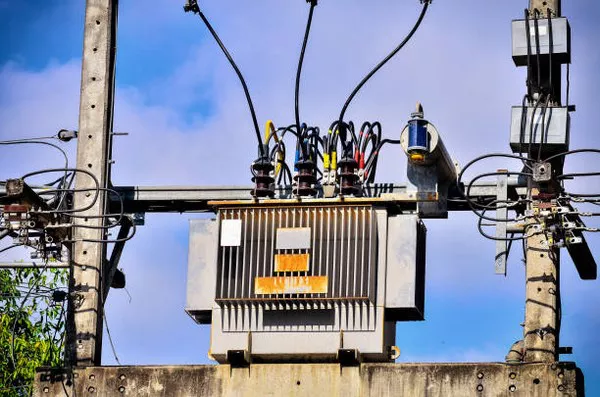Hospitals are critical infrastructure, providing essential care to patients regardless of external circumstances. One of the cornerstone elements ensuring uninterrupted healthcare services during emergencies is backup power generation. Backup generators act as a failsafe, kicking in when the main power supply fails due to blackouts, natural disasters, or other unforeseen events. Understanding the lifespan of these generators is paramount for hospital administrators to guarantee seamless operations and patient safety. In this article, we delve into the factors affecting the longevity of hospital backup generators and strategies for optimizing their lifespan.
Importance of Backup Generators in Hospitals
Hospitals rely heavily on electricity to power medical equipment, lighting, heating, and cooling systems. Interruptions to this power supply can have dire consequences, potentially endangering patient lives and compromising critical medical procedures. Backup generators serve as a crucial component of a hospital’s infrastructure, ensuring that essential operations continue without disruption during power outages. These generators are designed to activate automatically, providing immediate power to critical areas such as operating rooms, intensive care units, and emergency departments.
Factors Influencing Generator Lifespan
Several factors influence the lifespan of hospital backup generators, ranging from environmental conditions to maintenance practices. Understanding these factors is essential for hospital administrators to effectively manage their generator systems.
Quality of Equipment
The quality of the backup generator itself plays a significant role in determining its lifespan. High-quality generators constructed from durable materials and components are more likely to withstand the rigors of continuous operation over an extended period. Investing in reputable brands known for reliability and longevity can contribute to a longer lifespan for hospital backup generators.
Regular maintenance: Implementing a robust maintenance schedule is critical for preserving the longevity of backup generators. Regular inspections, testing, and servicing by qualified technicians can identify potential issues early and prevent catastrophic failures. Components such as fuel filters, oil levels, coolant systems, and electrical connections should be inspected and maintained according to manufacturer guidelines.
Environmental factors: The operating environment significantly impacts the lifespan of backup generators. Generators exposed to extreme temperatures, humidity, dust, or corrosive chemicals are more prone to wear and tear. Proper installation, including adequate ventilation and protection from the elements, can mitigate these risks and prolong the generator’s lifespan.
Load capacity: Overloading a generator beyond its capacity can accelerate wear and reduce its lifespan. Hospital administrators should carefully assess the power requirements of their facilities and ensure that backup generators are appropriately sized to handle peak loads. Implementing load shedding measures during emergencies can prevent excessive strain on the generator system.
Fuel quality: The quality and cleanliness of fuel used in backup generators can impact their performance and longevity. Contaminated or degraded fuel can cause clogging, corrosion, and engine damage over time. Hospital administrators should establish protocols for fuel storage, filtration, and replenishment to maintain optimal generator operation.
Optimizing Generator Lifespan
While some factors influencing the lifespan of hospital backup generators are beyond control, there are proactive measures that hospital administrators can take to optimize longevity and reliability.
1. Comprehensive Maintenance Protocols
Developing and adhering to comprehensive maintenance protocols is paramount for preserving the lifespan of backup generators. Hospital maintenance staff or contracted service providers should conduct regular inspections, testing, and servicing according to manufacturer recommendations. This includes checking fluid levels, inspecting electrical connections, testing battery performance, and conducting load bank testing to verify generator capacity under full load conditions.
2. Training and Education
Ensuring that maintenance staff and facility personnel receive adequate training and education regarding generator operation and maintenance is essential. Proper training enables staff to identify potential issues, perform routine maintenance tasks, and respond effectively during emergencies. Additionally, ongoing education helps keep personnel abreast of technological advancements and best practices in generator maintenance.
3. Remote Monitoring and Diagnostic Systems
Implementing remote monitoring and diagnostic systems allows hospital administrators to track the performance of backup generators in real-time and receive alerts for potential issues. These systems enable proactive maintenance interventions, minimizing downtime and extending the lifespan of generator systems. Remote monitoring also facilitates predictive maintenance strategies, where potential failures can be identified and addressed before they occur.
4. Load Management Strategies
Developing load management strategies can help prevent overloading and excessive wear on backup generators. Hospitals can prioritize essential equipment and systems during power outages, implementing load shedding measures for non-critical functions. By distributing power demand more evenly and efficiently, hospitals can reduce strain on backup generators and extend their lifespan.
Conclusion
Hospital backup generators are vital lifelines, ensuring uninterrupted power supply during emergencies and enabling critical medical care to continue without interruption. Understanding the factors influencing the lifespan of these generators and implementing proactive maintenance and optimization strategies are essential for hospital administrators. By investing in quality equipment, adhering to comprehensive maintenance protocols, and leveraging technological advancements, hospitals can maximize the longevity and reliability of their backup generator systems, safeguarding patient safety and operational continuity.

